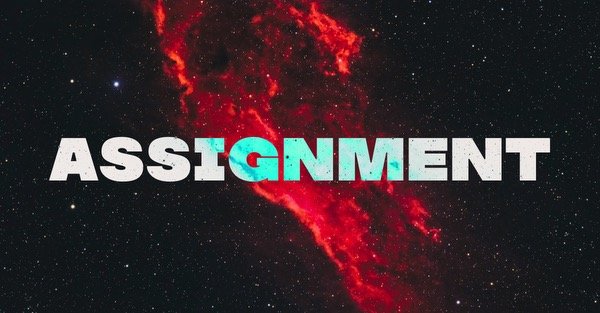Meeting #9 | This Week’s Leader: David Goodno
Introduction: Welcome everyone, this is the ninth meeting of the Men’s “Called” Growth Group, winter 2025 semester. Next week is our last meeting. (meeting every Wednesdays through March; 03/26/25); 7:00 – 8:30 pm. As we’ve said previously, everyone is welcome to attend; it doesn’t matter where you are in your faith journey, if you are a new-believer or have had a lifetime of walking with the Lord. – it doesn’t matter, 10 seconds or 10 years’ into your walk with Jesus; everyone is welcome.
Friendly reminder that we all come from various backgrounds, we have different points of view and are at different places in our individual faith journey; the purpose of meeting tonight is to come together, read the Bible, study God’s word and have a friendly discussion. If there are differing points of view, we should not feel attacked or become hostile. We came together as friends and brothers in Christ; we should leave the same (as friends and brothers in Christ). Often there is no right or wrong answer; just interpretation of scripture – ultimately, JESUS IS THE ANSWER.
We are continuing a SOAP(-Q) study (Scripture, Observation, Application, Prayer and Questions) of the book of Zechariah, who stressed the importance of maintaining a presence with the Lord and to remain in obedience to Him. Zechariah was concerned that exiles returning to Jerusalem, would repeat previous mistakes of their forefathers. Zechariah’s message is helpful to us today to direct our thoughts to the Lord’s plan for blessing and cleansing.
The book of Zechariah focuses on concerns of the temple, priesthood, and purification of the people. Chapters 1-8 deal with the rebuilding of the temple, the priesthood, and the future of Jerusalem. And chapters 9-14 deal mostly with the distant future and the coming Messianic kingdom.
Last week we read about Judgement against Israel’s Enemies and the Lord’s restoration of Judah and Israel. Tonight, we will read about good and evil shepherds and the coming deliverance for Jerusalem.
This Week’s Prayer: Father God, we thank you for allowing us to come together tonight and study your word. Lord, you give us wisdom, guidance, protection and provision. Lord help us to rely on you for everything; the big, the small, everything seen and unseen. Let your blessings overflow on us and onward to others. – Amen
Scripture, Read: Zechariah Chapter 11:1 – 12:14. (31 Verses)
Observation, Application & Questions: (Identify/Discuss Among the Group)
Do you know anyone who refuses to believe in the Bible or what the Bible says about Jesus? Think about asking them to explain how prophets who lived hundreds of years before Jesus was born, were able to accurately predict very specific details of His life. Were not talking about one or two details; there are dozens of details that accurately predict Jesus. Have the group perform an internet search to find Old Testament predictions that accurately point to Jesus. – Then discuss among the group.
Key verses for discussion:
Zechariah 11:1-3,
This song against Lebanon and Bashan ends the previous chapter, which was a message of deliverance and restoration. – The song also introduces the next message about good and evil shepherds.
11:1 – Lebanon, boasting snow-covered mountains and fruitful valleys, is believed to communicate and be a symbol of strength.
11:2 – Like Lebanon, Bahan had superb stands of timber. Lebanon and Bashan are often paired together in representing nations that God would judge when He would regather and restore the people of Israel. (see Isaiah 2:13; Jeremiah 22:20-22; and Ezekiel 27:5-6).
11:3 – Shepherds and lions; Biblical scholars believe that these represent the leaders of Lebanon and Bashan.
11:4-17
The Hebrew leaders as shepherds ties together the messages of chapter 9 through 11. This message combines Zechariah’s part to dramatize the wickedness of Israel’s shepherds. The parable of a “good shepherd” called by God to lead and unite his people; but the people reject him – this is symbolic the ministry of Jesus as the Good Shepherd and those who deny Him. (See John 10:1-21) – signifying how Israel will one day treat and reject Jesus.
11:4 – The people of Israel are God’s flock (Isaiah 40:11; Micha 5:4). The helplessness of sheep places importance on careful shepherding and the intent for the sheep to be slaughtered, indicating that the people are being treated as disposable goods in a corrupt economy..
11:5 – The sheep (aka Hebrew people) were being sold as slaves to buyers, who were foreign powers (see Amos 2:6). The sellers were the shepherds, leaders of the people who were more concerned with getting rich than with the well being of the sheep.
11:7 – The shepherd’s staff are believed to symbolize leadership and authority. Favor is believed to symbolize God’s choice of Israel as his people (Genesis 12:1-3). And the promise of a leader like King David (2 Samuel 7:12-16). Union Ezekiel’s staff (Ezekiel 37:16-17) represented the unity of the Hebrew tribes as a single nation during King David’s reign (2 Samuel 5:1-3)
11:10 – cutting the staff signifies the broken covenant bond between God and his people and the broken bond between Judah and Israel.
11:12 – 30 pieces of silver was the price of a slave (Exodus 21:32); the betrayal of Jesus was for thirty silver coins paid to Judas (Matthew 26:15; 27:9-10)
11:13 – to the potter some Biblical scholars speculate that a guild of potters might have been minor Temple officials due to the continual need for sacred vessels (Leviticus 6:28). Thirty silver coins was a considerable sum of money, nearly two years’ wages for the average laborer.
11:15 – the worthless shepherd represents corrupt leaders in contrast with the good shepherd (Ezekiel 34:7-16).
11:16 – Tear off their hooves, is a Hebrew saying for a wanton and ravenous search for the last piece of edible meat on an animal carcass (Micha 3:3)
11:17 – the useless arm and blind right eye, make the shepherd worthless and powerless.
12:1-14
12:2 – intoxicating drink, is believed to be a symbol of God’s Judgment (Isaiah 51:17; Matthew 26:39; Revelation 14:10) Jerusalem would be instrumental in God’s judgment on the nearby nations.
12:3 – Jerusalem will be an immovable rock that cuts and gashes those who attempt to conquer and control it, because the city was founded by the Lord.
12:4 – Madness, blindness, and panic were among the curses threatened against Israel for covenant disobedience (Deuteronomy 28:28).
12:5 – The Lord of Heaven’s Armies, this title emphasizes God’s irrepressible power. The frequent repetition of this title assures his audience that the diving promises concerning Judah’s victory would be fulfilled.
12:6 - Flame, literally fire pan bronze or gold fire pans were used to carry hot coals to and from the sacrificial alters of the Tabernacle and the Temple (Exodus 27:3; 1 Kings 7:50). God would set Israel among the nations like a burning fire pan to destroy or purify them.
12:8 – The angel of the Lord, is God represented as a Divine Warrior, rescuer and protector. The weak will be filled with God’s power.
12:10 – pour out, This word describes the outpouring of God’s spirt of prophecy upon Israel and all people on the day of the Lord.
A spirt of God’s grace, God’s unmerited and unsought favor persuades God’s people to seek him.
Me whom they have pierced, the New Testament understands the pirecing of the Messiah, Jesus of Nazareth (John 19:34-37; Revelation 1:7)
12:11 – The name Hadad-rimmon, combines the names of two Syrian deities, the storm-god Hadad and the thunder-god Rimmon.
The great mourning for these gods may be similar to the weeping for Tammuz, one of the rituals practiced in Mesopotamian fertility cults.
Joshua captured Megiddo (Joshua 12:21), a major city on the southwest edge of the Jezreel Valley; it was allotted to the tribe of Manasseh (Joshua 17:11). Megiddo controlled a key pass on the great highway from Egypt to Mesopotamia, and so was of great strategic importance. It was a district capital during Solomon’s reign (1 Kings 4:12).
King Josiah was mortally wounded in a battle against Pharaoh Neco and the Egyptians on the plain of Megiddo and is the site of the great battle depicted in Revelation 16:16.
12:12, 13 & 14 – The clan of David…Nathan…Levi, and …Shimei, Zechariah might be referring to the royal families (1 Chronicles 14:4); and the priestly families (Numbers 3:16-18; 1 Chronicles 6:16-17).
The four families may could represent the four principal classes of leadership in Old Testament times: the king, the prophet, the priest, and the tribal leader
King – David, 1 Samuel 16:1-13;
Prophet – Nathan, 2 Samuel 7:2;
Priest – Levi, Deuteronomy 33:8-11; and
The Tribal Leader – Shimei, 1 Kings 1:8 and 4:18).
Other questions to explore:
What was the context? What was going on at the time this was written?
What and where is this happening?
What makes what was happening meaningful?
Is there anything special about the location (or locations)?
Who is involved?
How do they respond to God?
What character traits do you notice about them?
What is the significance of their involvement?
What do you think is the key message?
Did anything surprise you? What was it?
Were there any repetitive words or themes that stood out to you? What were they?
---
Is there anything that stood out to you? Share with the group and discuss.
Is there anything that left you with more questions? What were they? Share with group, discuss, and research.
Biggest takeaway?
Prepare for next week’s meeting. Read: Zechariah 13:1 – 14:21. (30 Verses)
Is there anything that stands out when reading these verses? Be ready to discuss it at the next meeting.
Watch the Three Circles video
REMINDER: FV Church has multiple events planned in the future to help you and your family stay involved with the church and connected. Please monitor https://fv.church/events for more information.
References/Acknowledgements:
Elements of today’s Bible study were referenced from:
1. NLT Courage for Life Men’s Bible, New Living Translation (NLT); copyright 2023 Tyndale House Ministries Holy Bible, New Living Translation, copyright 1996, 2004, 2015 by Tyndale House Foundation https://www.tyndale.com/sites/courageforlifebible/
2. NIV Study Bible, Revolution, copyright 2011. The Holy Bible, New International Version (NIV); copyright 1973, 1978, 1984, 2011 by Zondervan, Grand Rapids, Michigan. https://www.zondervan.com/p/niv-bibles-for-teens-true-images-revolution/
3. NKJV The Jeremiah Study Bible, New King James Version (NKJV); copyright 2013 David Jeremiah, Inc. Holy Bible, New King James Version, copyright 1982 by Thomas Nelson, Inc. https://www.thomasnelson.com/bibles
4. Knowing the Bible, Haggai, Zechariah, and Malachi, by Steven M. Coleman, J. L. Packer, Dane C. Ortlund; copyright 2018 by Crossway, Wheaton, Illinois.
5. The Good Book Guide to Zechariah, God’s big plan for struggling Christians, by Tim Chester, copyright 2005 by the Good Book Company. https://www.thegoodbook.com
Schedule: Month, Meeting Number, Date, Book/Chapters/Verse/ (Total Verses)
January 2025:
_x_ 001, 01/22 Haggai 1:1 – 2:23. (38 Verses)
_x_ 002, 01/29 Zechariah 1:1-21. (21 Verses)
February 2025:
_x_ 003, 02/05 Zechariah 2:1 – 3:10. (23 Verses)
_x_ 004, 02/12 -- Canceled due to weather --
_x_ 005, 02/19 Zechariah 4:1 – 5:11. (25 Verses)
_x_ 006, 02/26 Zechariah 6:1 – 7:14. (29 Verses)
March 2025:
_x_ 007, 03/05 Zechariah 8:1- 23. (23 Verses)
_x_ 008, 03/12 Zechariah 9:1 – 10:12. (29 Verses) – updated.
_x_ 009, 03/19 Zechariah 11:1 – 12:14. (31 Verses) – updated.
__ 010, 03/26 Zechariah 13:1 – 14:21. (30 Verses) * - updated.
*Please monitor FV.church/events for more information about the next semester.


